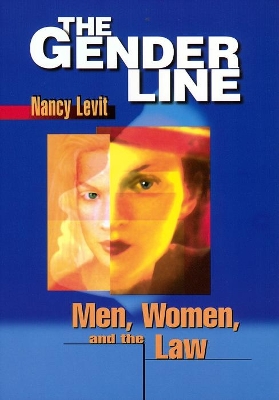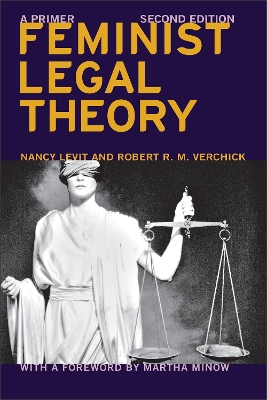Critical America
2 total works
Despite tremendous advances in civil rights, we live in a world where the sexes remain sharply segregated from birth to death: in names, clothing, social groupings, and possessions; in occupations, civic association, and domestic roles. Gender separatism, so pervasive as to be almost invisible, permeates the fabric of our daily social routines. Preferring a notion of gender that is fluid and contextual, and denying that separatism is inevitable, Nancy Levit dismantles the myths of gender essentialism Drawing on a wealth of interdisciplinary data regarding the biological and cultural origins of sex differences, Levit provides a fresh perspective on gendered behaviors and argues the need for careful cultivation of new relations between the sexes.
With its focus particularly on men, The Gender Line offers an insightful overview of the construction of gender and the damaging effects of its stereotypes. Levit analyzes the ways in which law legitimizes the social segregation of the sexes through legal decisions regarding custody, employment, education, sexual harassment, and criminal law. In so doing, she illustrates the ways in which men's and women's oppressions are intertwined and how law molds the very definition of masculinity.
Applying feminist methodology to the doctrine of feminism itself, Levit artfully demonstrates that gender separatism infects even our contemporary views of feminism. Levit asks questions that have been too long been unspoken--those that lie at the core of the feminist project, yet threaten its very foundations. Revealing masculinity as both a privileged and a victimized condition, she calls for a step forward, past the bounds of contemporary feminism and its conflicts, toward a more egalitarian and inclusive feminism. This brand of feminism would reshape traditional masculinity, invite men into feminist dialogue, and claim men as political allies.
Feminist Legal Theory (Second Edition)
by Nancy Levit, Robert R.M. Verchick, and Martha Minow
Feminist legal theory is one of the most dynamic fields in the law, and it affects issues ranging from child custody to sexual harassment. Since its initial publication in 2006, Feminist Legal Theory: A Primer has received rave reviews. Now, in the completely updated second edition of this outstanding primer, Nancy Levit and Robert R.M. Verchick introduce the diverse strands of feminist legal theory and discuss an array of substantive legal topics, pulling in recent court decisions, new laws, and important shifts in culture and technology. The book centers on feminist legal theories, including equal treatment theory, cultural feminism, dominance theory, critical race feminism, lesbian feminism, postmodern feminism, and ecofeminism. Readers will find new material on women in politics, gender and globalization, and the promise and danger of expanding social media. Updated statistics and empirical analysis appear throughout. The authors, prominent experts in the field, also address feminist legal methods, such as consciousness-raising and storytelling.
The primer offers an accessible and pragmatic approach to feminist legal theory. It demonstrates the ways feminist legal theory operates in real-life contexts, including domestic violence, reproductive rights, workplace discrimination, education, sports, pornography, and global issues of gender. The authors highlight a sweeping range of cutting-edge topics at the intersection of law and gender, such as single-sex schools, abortion, same-sex marriage, rape on college campuses, and international trafficking in women and girls.
At its core, Feminist Legal Theory shows the importance of the roles of law and feminist legal theory in shaping contemporary gender issues.

